 W
WElliot Aronson is an American psychologist who has carried out experiments on the theory of cognitive dissonance, and invented the Jigsaw Classroom, a cooperative teaching technique which facilitates learning while reducing interethnic hostility and prejudice. In his 1972 social psychology textbook, The Social Animal, he stated Aronson's First Law: "People who do crazy things are not necessarily crazy," thus asserting the importance of situational factors in bizarre behavior. He is the only person in the 120-year history of the American Psychological Association to have won all three of its major awards: for writing, for teaching, and for research. In 2007 he received the William James Award for Lifetime Achievement from the Association for Psychological Science, in which he was cited as the scientist who "fundamentally changed the way we look at everyday life.” A Review of General Psychology survey, published in 2002, ranked Aronson as the 78th most cited psychologist of the 20th century. He officially retired in 1994 but continues to teach and write.
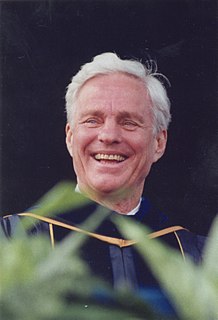 W
WRichard Chatham Atkinson is an American professor of psychology and cognitive science and an academic administrator. He is president emeritus of the University of California system, former chancellor of the University of California, San Diego, and former director of the National Science Foundation.
 W
WAlbert Bandura is a Canadian-American psychologist who is the David Starr Jordan Professor Emeritus of Social Science in Psychology at Stanford University.
 W
WAlfred Binet, born Alfredo Binetti, was a French psychologist who invented the first practical IQ test, the Binet–Simon test. In 1904, the French Ministry of Education asked psychologist Alfred Binet to devise a method that would determine which students did not learn effectively from regular classroom instruction so they could be given remedial work. Along with his collaborator Théodore Simon, Binet published revisions of his test in 1908 and 1911, the last of which appeared just before his death.
 W
WBenjamin Samuel Bloom was an American educational psychologist who made contributions to the classification of educational objectives and to the theory of mastery learning. He is particularly noted for leading educational psychologists to develop the comprehensive system of describing and assessing educational outcomes in the mid-1950s. He has influenced the practices and philosophies of educators around the world from the latter part of the twentieth century.
 W
WLloyd Bond is an American researcher in the field of psychometrics. As of 2009, he is a consulting scholar at the Carnegie Foundation for the Advancement of Teaching in Stanford, California; he served as a senior scholar at the foundation from 2002 to 2008.
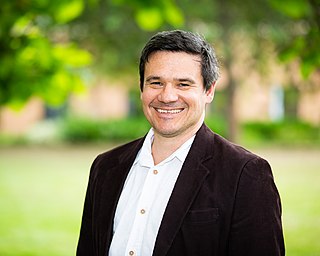 W
WChristopher (Chris) Boyle is a Fellow of the British Psychological Society, Senior Fellow of the Higher Education Academy and an Associate Professor in Psychology and Inclusive Education at the University of Exeter. He has previously been an association football Referee who refereed in the Australian A-League and the Scottish Premiership. Dr Boyle is a qualified psychologist working in the UK and in Australia. Dr. Boyle has written extensively on subjects of psychology and inclusive education. He is a respected academic and has authored over 100 publications on these topics.
 W
WJerome Seymour Bruner was an American psychologist who made significant contributions to human cognitive psychology and cognitive learning theory in educational psychology. Bruner was a senior research fellow at the New York University School of Law. He received a B.A. in 1937 from Duke University and a Ph.D. from Harvard University in 1941. He taught and did research at Harvard University, the University of Oxford, and New York University. A Review of General Psychology survey, published in 2002, ranked Bruner as the 28th most cited psychologist of the 20th century.
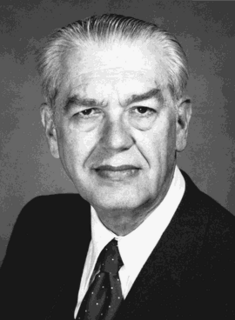 W
WJohn Bissell Carroll was an American psychologist known for his contributions to psychology, linguistics and psychometrics.
 W
WAndreas Demetriou is a Greek Cypriot developmental psychologist and former Minister of Education and Culture of Cyprus. Founding Fellow and current president of The Cyprus Academy of Sciences, Letters and Arts.
 W
WJohn Dewey was an American philosopher, psychologist, and educational reformer whose ideas have been influential in education and social reform. He was one of the most prominent American scholars in the first half of the twentieth century.
 W
WKieran Egan is a contemporary educational philosopher and a student of the classics, anthropology, cognitive psychology, and cultural history. He has written on issues in education and child development, with an emphasis on the uses of imagination and the intellectual stages that occur during a person's intellectual development. He has questioned the work of Jean Piaget and progressive educators, notably Herbert Spencer and John Dewey.
 W
WCharles Bohris Ferster was an American behavioral psychologist. A pioneer of applied behavior analysis, he developed errorless learning and was a colleague of B.F. Skinner's at Harvard University, co-authoring the book Schedules of Reinforcement (1957).
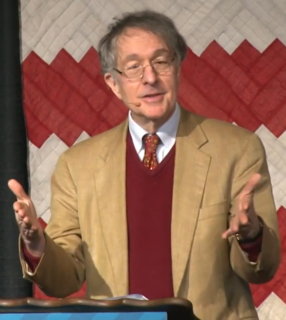 W
WHoward Earl Gardner is an American developmental psychologist and the John H. and Elisabeth A. Hobbs Research Professor of Cognition and Education at the Harvard Graduate School of Education at Harvard University. He is currently the senior director of Harvard Project Zero, and since 1995, he has been the co-director of The Good Project.
 W
WArthur Irving Gates was an American educationist who specialized in educational psychology. He wrote several books and papers on remedial education, testing, and reading; and served as a professor in Columbia University.
 W
WGene V Glass is an American statistician and researcher working in educational psychology and the social sciences. According to the science writer Morton Hunt, he coined the term "meta-analysis" and illustrated its first use in his presidential address to the American Educational Research Association in San Francisco in April, 1976. The most extensive illustration of the technique was to the literature on psychotherapy outcome studies, published in 1980 by Johns Hopkins University Press under the title Benefits of Psychotherapy by Mary Lee Smith, Gene V Glass, and Thomas I. Miller. Gene V Glass is a Regents' Professor Emeritus at Arizona State University in both the educational leadership and policy studies and psychology in education divisions, having retired in 2010 from the Mary Lou Fulton Institute and Graduate School of Education. Currently he is a senior researcher at the National Education Policy Center, a Research Professor in the School of Education at the University of Colorado Boulder, and a Lecturer in the Connie L. Lurie College of Education at San Jose State University. In 2003, he was elected to membership in the National Academy of Education.
 W
WSusan Goldin-Meadow is the Beardsley Ruml Distinguished Service Professor in the Departments of Psychology, Comparative Human Development, the college, and the Committee on Education at the University of Chicago. She is the principal investigator of a 10-year program project grant, funded by the National Institute of Child Health and Human Development, designed to explore the impact of environmental and biological variation on language growth. She is also a co-PI of the Spatial Intelligence and Learning Center (SILC), one of six Science of Learning Centers funded by the National Science Foundation to explore learning in an interdisciplinary framework with an eye toward theory and application. She is the founding editor of Language Learning and Development, the official journal of the Society for Language Development. She was President of the International Society for Gesture Studies from 2007–2012.
 W
WLinda Susanne Gottfredson is an American psychologist and writer. She is professor emeritus of educational psychology at the University of Delaware and co-director of the Delaware-Johns Hopkins Project for the Study of Intelligence and Society. She is best known for writing the 1994 letter "Mainstream Science on Intelligence", which was published in the Wall Street Journal in defense of Richard Herrnstein and Charles Murray's controversial book The Bell Curve (1994).
 W
WManfred Günther, is a German educational psychologist, specialised in young people, the prevention of violence and social therapy methods; today he works as an author and coach. He lives in Berlin, Germany and Tazacorte, La Palma, Spain.
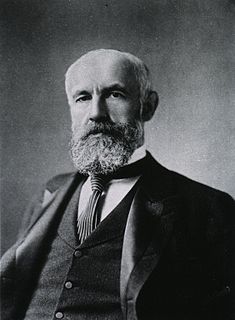 W
WGranville Stanley Hall was a pioneering American psychologist and educator. His interests focused on childhood development and evolutionary theory. Hall was the first president of the American Psychological Association and the first president of Clark University. A Review of General Psychology survey, published in 2002, ranked Hall as the 72nd most cited psychologist of the 20th century, in a tie with Lewis Terman.
 W
WIdit R. Harel is an Israeli-American entrepreneur and CEO of Globaloria. She is a learning sciences researcher and pioneer of Constructionist learning-based EdTech interventions.
 W
WLorna Myrtle Hodgkinson was an Australian educator and educational psychologist who worked with intellectually disabled children. She was the first woman to receive a Doctor of Education degree from Harvard University. She called out the poor system in Australia and her reputation was ruined by the minister responsible.
 W
WKlaus Holzkamp was a German psychologist.
 W
WPercy Hughes (1872–1952) was a philosopher and teacher, and a leading figure in the Philosophy, Education, and Psychology department at Lehigh University.
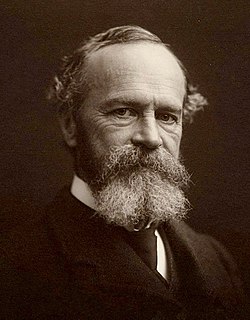 W
WWilliam James was an American philosopher, historian, and psychologist, and the first educator to offer a psychology course in the United States. James is considered to be a leading thinker of the late nineteenth century, one of the most influential philosophers of the United States, and the "Father of American psychology".
 W
WArthur Robert Jensen was an American psychologist and writer. He was a professor of educational psychology at the University of California, Berkeley. Jensen was known for his work in psychometrics and differential psychology, the study of how and why individuals differ behaviorally from one another.
 W
WCharles Hubbard Judd was an American educational psychologist who played an influential role in the formation of the discipline. Part of the larger scientific movement of this period, Judd pushed for the use of scientific methods to the understanding of education and, thus, wanted to limit the use of theory in the field. Judd who was known for applying scientific methods to the study of educational issues.
 W
WScott Barry Kaufman is an American cognitive scientist, author, podcaster, and popular science writer. His writing and research focuses on intelligence, creativity, and human potential. Most media attention has focused on Kaufman's attempt to redefine intelligence.
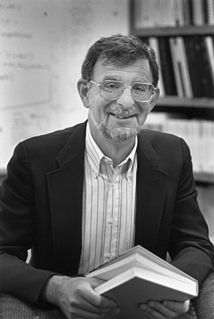 W
WDavid Klahr is an American psychologist whose research ranges across the fields of cognitive development, psychology of science, and educational psychology and has been a professor at Carnegie Mellon University since 1969. He is the Walter van Dyke Bingham Professor of Cognitive Development and Education Sciences at Carnegie Mellon University and a member of the National Academy of Education, a Fellow of the American Psychological Association, a Charter Fellow of the Association for Psychological Science, on the Governing Board of the Cognitive Development Society, a member of the Society for Research in Child Development, and the Cognitive Science Society. He was an associate editor of Developmental Psychology and has served on the editorial boards of several cognitive science journals, as well as on the National Science Foundation's subcommittee on Memory and Cognitive Processes, and the National Institutes of Health's Human Development and Aging Study Section.
 W
WJean Lave is a social anthropologist who theorizes learning as changing participation in on-going changing practice. Her lifework challenges conventional theories of learning and education.
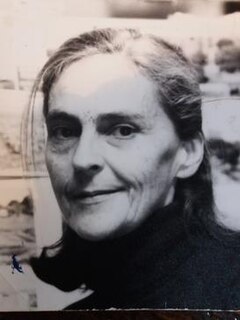 W
WSonia Machanick was a South African medical doctor, author and educational psychologist who pioneered new methods of teaching children with dyslexia and other learning difficulties. She founded Japari School, a special school in Johannesburg that provides education for children who struggle to thrive in the mainstream education system. She wrote a series of four graded reading books and other reading tutors in English and Afrikaans that were widely used throughout the 1960s and 1970s for teaching the phonics reading method, as well as articles concerning the treatment of children with learning difficulties.
 W
WEverett Dean Martin was an American minister, writer, journalist, instructor, lecturer, social psychologist, social philosopher, and an advocate of adult education. He was an instructor and lecturer at The New School for Social Research in New York City from 1921 to 1929, and served on the board of directors of The New School from 1925 to 1932. He was the final director of the People's Institute of Cooper Union in New York City from 1922 to 1934. Martin was born in Jacksonville, Illinois, on July 5, 1880. Graduating with honors at the age of 24 from Illinois College in Jacksonville, he moved on to Chicago, attending McCormick Theological Seminary from 1904 until his ordination as a Congregational Minister in 1907. Martin received a Litt.D. degree from Illinois College in 1907. He was best known for his advocacy of the liberal education of adults, which he saw as “an antidote to both the irrationality of the crowd and the power of propaganda.”
 W
WSara Netanyahu is the wife of former Israeli Prime Minister Benjamin Netanyahu. By profession, she is an educational and career psychologist.
 W
WDr. Lilli Nielsen was a Danish psychologist in the field of teaching blind children and those with multiple disabilities.
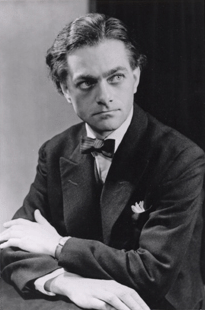 W
WAndrew Gordon Speedie Pask was an English author, inventor, educational theorist, cybernetician and psychologist who made significant contributions to cybernetics, instructional psychology, experimental epistemology and educational technology. Pask first learned about cybernetics in the early 1950s when the originator of the subject, Norbert Wiener, spoke at Cambridge University, where Pask was an undergraduate student. Pask was asked to be of assistance during Wiener's talk.
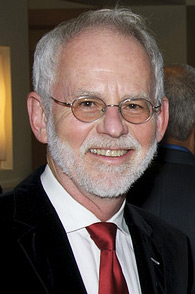 W
WRoy Pea is David Jacks Professor of Learning Sciences and Education at the Stanford Graduate School of Education. He has extensively published works in the field of the Learning Sciences and on learning technology design and made significant contributions since 1981 to the understanding of how people learn with technology.
 W
WJoseph Renzulli is an American educational psychologist. He is the Board of Trustees Distinguished Professor at the University of Connecticut's Neag School of Education.
 W
WAgnes Low Rogers was a Scottish educator and educational psychologist.
 W
WCarl Ransom Rogers was an American psychologist and among the founders of the humanistic approach in psychology. Rogers is widely considered to be one of the founding fathers of psychotherapy research and was honored for his pioneering research with the Award for Distinguished Scientific Contributions by the American Psychological Association (APA) in 1956.
 W
WGavriel Salomon was an Israeli educational psychologist who conducted research on cognition and instruction. He was a Professor Emeritus in the department of education at the University of Haifa.
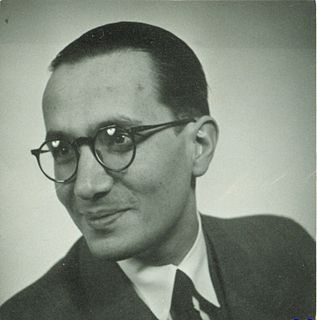 W
WDelfim Pinto dos Santos (1907–1966), was a Portuguese academic, philosopher, educationist, essayist and book and movie reviewer.
 W
WCarl Emil Seashore, born Sjöstrand was a prominent American psychologist and educator. He was the author of numerous books and articles principally regarding the fields of speech-language pathology, music education, and the psychology of music and art. He served as Dean of the Graduate College of University of Iowa from 1908–1937. He is most commonly associated with the development of the Seashore Tests of Musical Ability.
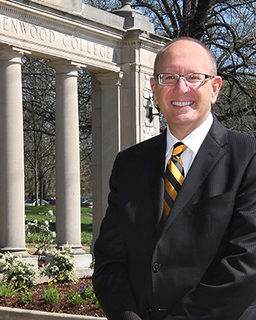 W
WMichael D. Shonrock is an American academic and former administrator. He was the president of Lindenwood University, located in St. Charles, Missouri, June 2015 to February 2019. Shonrock previously served as Emporia State University's 16th president from January 3, 2012 to May 28, 2015, and before that as Texas Tech University's vice president for student affairs and enrollment management in Lubbock, Texas.
 W
WBurrhus Frederic Skinner was an American psychologist, behaviourist, author, inventor, and social philosopher. He was a professor of psychology at Harvard University from 1958 until his retirement in 1974.
 W
WEdwin Diller Starbuck born Edwin Eli Starbuck was an American educational psychologist who took a special interest in the teaching of morals and character in children independent of religious instruction. His idea was to imbue morals through indirect means where students would learn by inference.
 W
WRobert J. Sternberg is an American psychologist and psychometrician. He is Professor of Human Development at Cornell University. Prior to joining Cornell, Sternberg was president of the University of Wyoming for 5 months. He has been Provost and Professor at Oklahoma State University, Dean of Arts and Sciences at Tufts University, IBM Professor of Psychology and Education at Yale University. He is a member of the editorial boards of numerous journals, including American Psychologist. He was the past President for the American Psychological Association.
 W
WLewis Madison Terman was an American psychologist and author. He was noted as a pioneer in educational psychology in the early 20th century at the Stanford Graduate School of Education. He is best known for his revision of the Stanford–Binet Intelligence Scales and for initiating the longitudinal study of children with high IQs called the Genetic Studies of Genius. He was a prominent eugenicist and was a member of the Human Betterment Foundation. He also served as president of the American Psychological Association. A Review of General Psychology survey, published in 2002, ranked Terman as the 72nd most cited psychologist of the 20th century, in a tie with G. Stanley Hall.
 W
WCharles Henry Thompson was an American educational psychologist and the first African-American to earn a doctorate degree in educational psychology. He obtained a Masters degree and Ph.D at the University of Chicago. Born in Jackson, Mississippi, He would later become an educator at Howard University. During his time at Howard, he was the dean of the liberal art college and later became the dean of Howard’s graduate school, where he made several administrative and scholarship changes. Additionally, he founded the Journal of Negro Education, an academic journal pertaining to the education of African-American students. Thompson himself published over 100 scholarly articles, editorials, and research papers; many of which pertained to the teaching and advancement of African-American student's education. Throughout his extensive academic career, he was a legal consultant for various desegregation school cases, prominently in Sweatt v. Painter, Sipuel v. Board of Regents of the University of Oklahoma, McLaurin v. Oklahoma State Regents. He also was a legal consultant for Brown vs. Board of Education, though to a lesser extent that the three former cases.
 W
WEdward Lee Thorndike was an American psychologist who spent nearly his entire career at Teachers College, Columbia University. His work on comparative psychology and the learning process led to the theory of connectionism and helped lay the scientific foundation for educational psychology. He also worked on solving industrial problems, such as employee exams and testing. He was a member of the board of the Psychological Corporation and served as president of the American Psychological Association in 1912. A Review of General Psychology survey, published in 2002, ranked Thorndike as the ninth-most cited psychologist of the 20th century. Edward Thorndike had a powerful impact on reinforcement theory and behavior analysis, providing the basic framework for empirical laws in behavior psychology with his law of effect. Through his contributions to the behavioral psychology field came his major impacts on education, where the law of effect has great influence in the classroom.
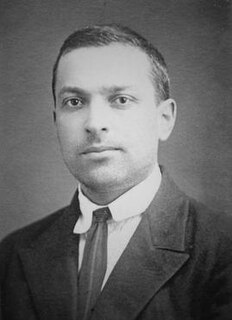 W
WLev Semyonovich Vygotsky was a Soviet psychologist, known for his work on psychological development in children. He published on a diverse range of subjects, and from multiple views as his perspective changed over the years. Among his students was Alexander Luria and Kharkiv school of psychology.
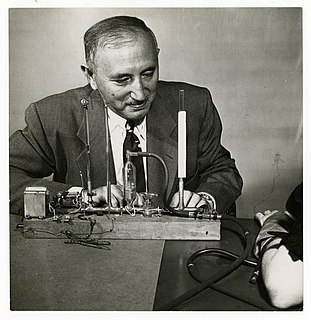 W
WDavid Wechsler was a Romanian-American psychologist. He developed well-known intelligence scales, such as the Wechsler Adult Intelligence Scale (WAIS) and the Wechsler Intelligence Scale for Children (WISC). A Review of General Psychology survey, published in 2002, ranked Wechsler as the 51st most cited psychologist of the 20th century.
 W
WGuy Montrose Whipple was an American educational psychologist known for developing psychological tests of human intelligence and personality. His other research interests included gifted education, literacy, vocational education, and the psychology of eyewitness testimony. A 1997 article about giftedness described Whipple as "an all-but-forgotten pioneer in this field".
 W
WDonna Wilson is an educational and school psychologist, teacher educator, and author of 20 books applying mind, brain, and education science. Recent works, with coauthor Marcus Conyers, include Teaching Students to Drive Their Brains: Metacognitive Strategies, Activities, and Lesson Ideas, Smarter Teacher Leadership: Neuroscience and the Power of Purposeful Collaboration, Positively Smarter: Science and Strategies to Increase Happiness, Achievement, and Well-Being, Five Big Ideas for Effective Teaching: Connecting Mind, Brain, and Education Research to Classroom Practice, and Flourishing in the First Five Years: Connecting Implications from Mind, Brain, and Education Research to the Development of Young Children.
 W
WBenjamin DeKalbe Wood was an American educator, researcher, and director / professor at Columbia University. He was a pioneer in learning technologies and automated testing methods. Wood is the creator of the multiple choice test, which was the state-of-the-art way of measuring a teacher's understanding of certain subjects that in the long run influenced their salaries. He helped in the design of the multiple choice form of the pencil-in bubbles used in the 20th-century and the scoring machine that automatically read these forms, saving many hours in manual clerk labor. His concepts of intelligence tests were expanded to the accounting fields.